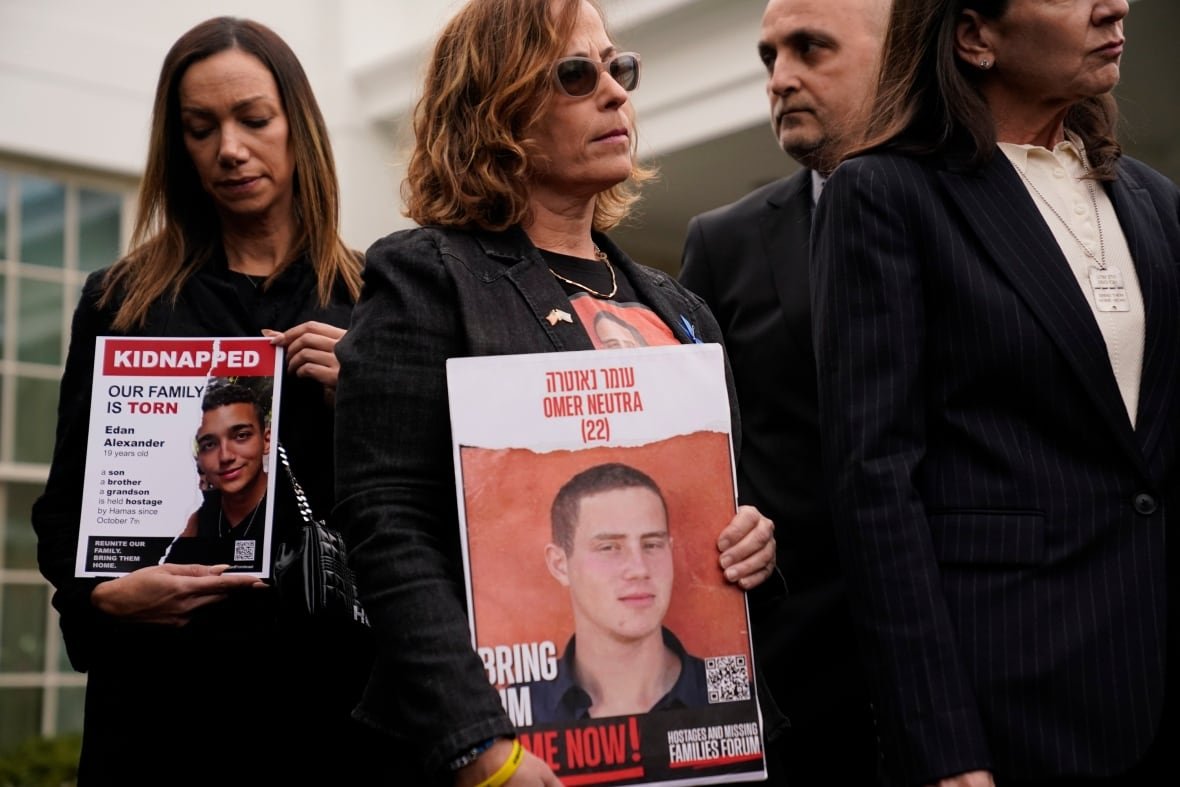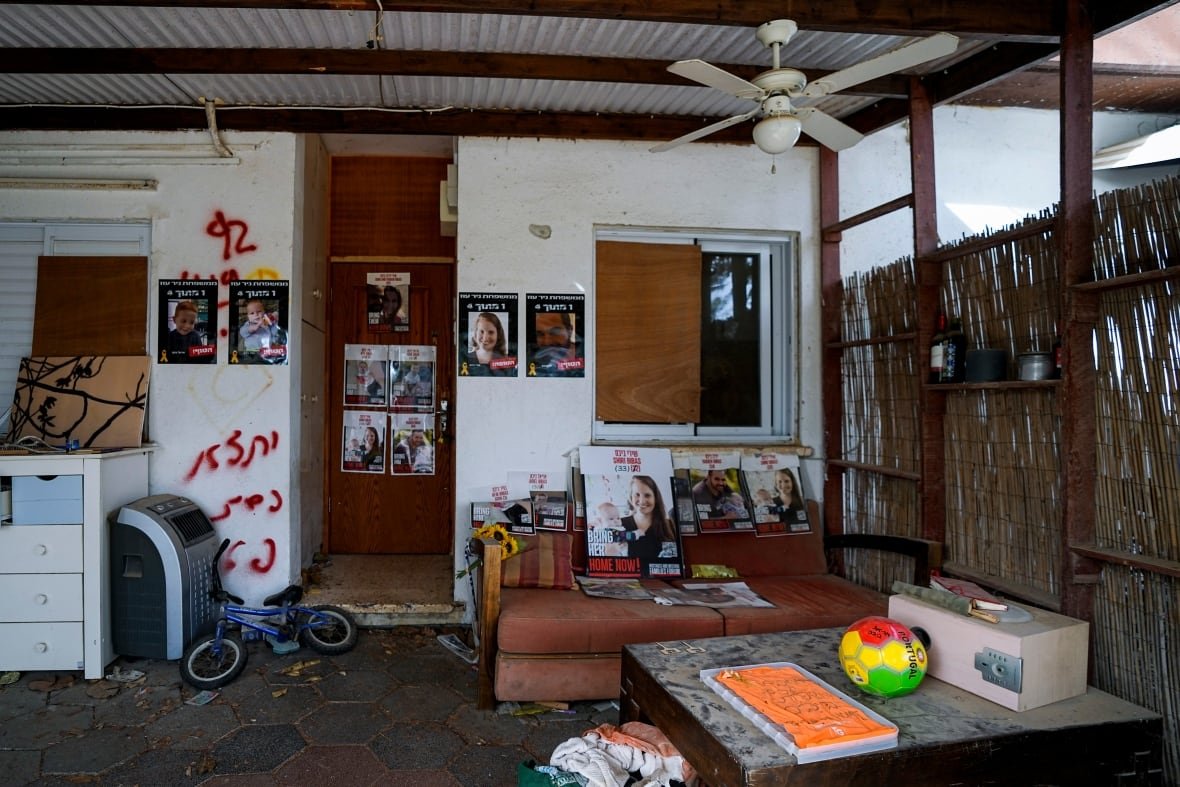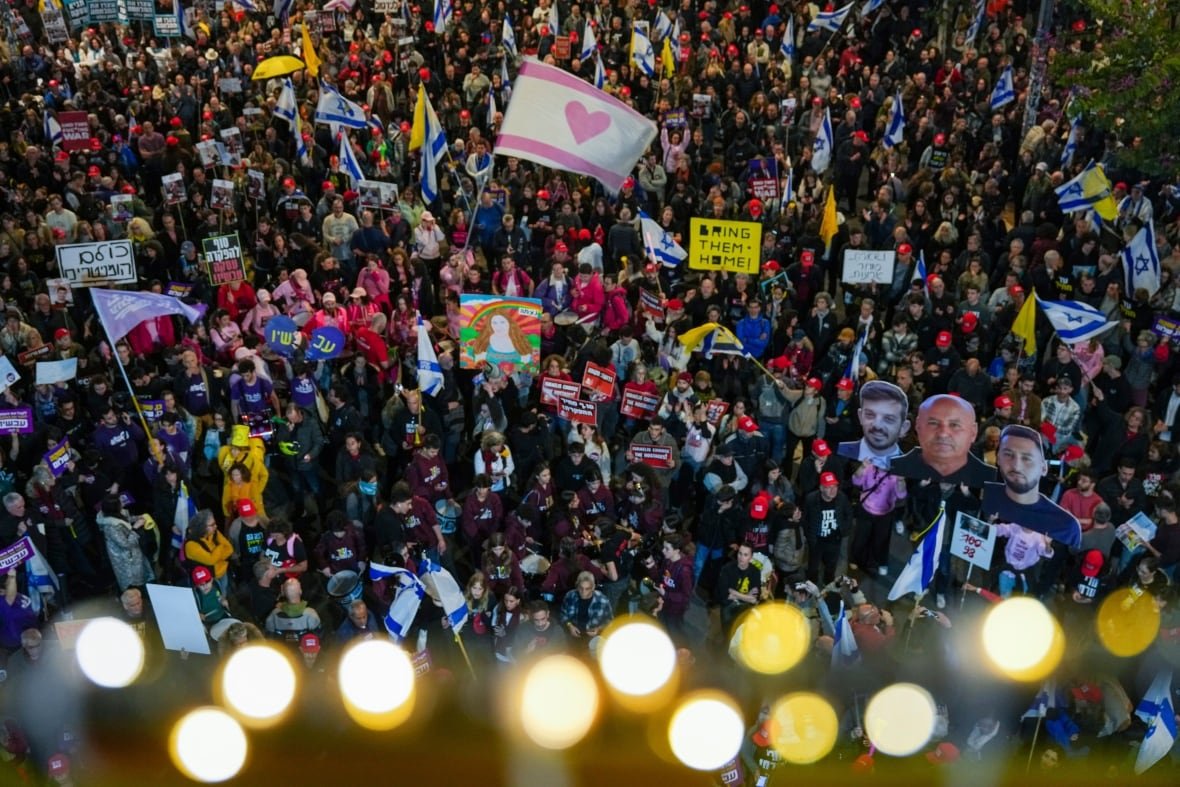For more than a year, Omer Neutra’s family held out hope he might still be alive after he was kidnapped in the aftermath of Oct. 7, 2023. His father said Neutra, who was in his 20s, was taken hostage as a front-line member of the Israeli military responding to the Hamas-led attack that ignited the latest war in the Middle East.
Last month, Israeli and American officials confirmed Neutra, a dual citizen, had in fact been killed during the surprise attack on the Nova Music Festival in southern Israel.
His death means the ceasefire deal announced Wednesday to stop the fighting in Gaza and secure hostages’ return took on a different, hallowed meaning to his family — not reunion, but repatriation.
“It is a very different shift to make from the hope of hugging him again to the hope of burying him, and I don’t wish for anyone to have to hope to bury their loved one,” Yasmin Magal, a Canadian-Israeli citizen, told CBC News Network on Wednesday.
“But he deserves a proper burial and we deserve to have a grave and the other families deserve to be reunited with their loved ones, so I’m just hopeful that we’re on the right path for that.”

Families waiting to learn their loved ones’ fate were left with a range of emotions at Wednesday’s news of a ceasefire deal to stop the fighting in Gaza and return those in captivity, from relief and euphoria for a tangible agreement to anxiety and apprehension about whether the arrangement will stick.
The deal calls for an initial group of 33 hostages to be returned to Israel on Sunday before negotiations on the release of the remaining 65 begin around two weeks later, according to mediators.
The first group — made up of children, women, and men over 50, as well as the wounded and sick — will be released gradually over the coming six weeks, but it was not immediately clear which of those people were alive and which had died.
‘A bit of relief’
Hostages’ family members poured into the streets of Jerusalem and Tel Aviv after the announcement Wednesday, tearfully hugging one another as longstanding ceasefire protests softened to candlelight vigils.
“It’s not a joy. It’s a bit of relief. But it’s going to be a huge relief, first of all, whenever I see Ofer,” Ifat Kalderon, whose cousin, Ofer, has been held captive in Gaza, told Reuters from Tel Aviv.
“Secondly, whenever I’m going to see the last hostages crossing the border and we’re going to be here protesting every day until it’s going to happen. Because I don’t know if it’s going to happen. I don’t know if we’re going to get all of them back home. And that is my huge fear, that we’re not going to get them all home.”
U.S. President Joe Biden spoke Wednesday after Qatar’s prime minister announced that Israel and Hamas have reached a deal to pause the war in Gaza and release hostages. ‘Too many innocent people have died, too many communities have been destroyed,’ Biden said.
Bring Them Home, a group representing the families of 98 hostages, issued a statement expressing “overwhelming joy and relief” at the agreement but said they were nervously waiting for next steps.
“It’s a roller coaster,” said Yosi Shnaider, a cousin of Shiri Bibas who was taken with her husband, Yarden, and children Ariel and Kfir, who were four years and 10 months old when militants stormed into southern Israel.
“We don’t know if they’re on the list, if they’re going to come back in the first phase, if they’re alive, if not. We actually don’t know anything. It’s scary,” he said.
Israeli tallies have said 1,200 people were killed and another 250 were kidnapped when Hamas-led militants stormed into southern Israel on Oct. 7.

Roughly 100 of those prisoners, including most women, children and foreign labourers, were freed in return for Palestinian detainees in a weeklong ceasefire in November 2023. Palestinian detainees will be freed in exchange for Israelis under the ceasefire deal.
Israel’s assault on Gaza has killed over 46,000 Palestinians, according to the territory’s Health Ministry. The ministry does not say how many of those people were militants, but said women and children account for more than half of the fatalities.
The attack has also reduced swaths of the impoverished territory to rubble and forced the majority of its 2.3 million residents from their homes, often several times.

Relatives worried about male hostages
Those with loved ones held captive in Gaza say they have endured a roller coaster over the past months as officials spoke of a potential breakthrough, only to have their hopes dashed when new obstacles got in the way of a deal.
Some relatives were also particularly worried Wednesday about male hostages, including both serving soldiers and men of military age. They said they do not have faith in Hamas, which remains in Gaza despite losing thousands of fighters and most of its top leaders.
“This is not an agreement, this is just hell,” said Daniel Algarat, whose brother Itzhak Elgarat, 69, was abducted from Nir Oz kibbutz on Oct. 7.
“My brother is going to come in the first stage but we don’t know what his condition is, we don’t know if he is alive, we know nothing.”
One feeling was universal.
“[I’m] exhausted,” said Magal, Neutra’s cousin, who is an Israeli-Canadian citizen. “I’m just hoping we can put this all behind us very soon.”

